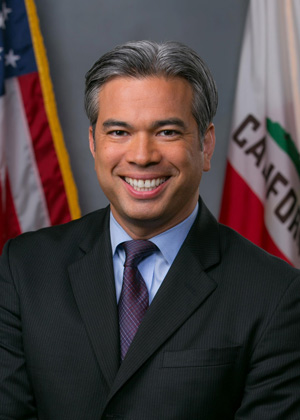June 10, 2024 - OAKLAND — California Attorney General Rob Bonta today submitted a comment letter in support of a proposed rule by the U.S.  Department of Housing and Urban Development (HUD) that would reduce barriers to HUD-assisted housing for individuals with past involvement in the criminal-legal system (justice-involved individuals). According to HUD, nearly a third of adult Americans have a criminal record. In California alone, approximately eight million individuals have some form of criminal record. In today’s comment letter, Attorney General Bonta underscores that affordable housing is vital to the successful reentry of justice-involved individuals and reducing recidivism. He also urges HUD to make several changes to the proposed rule to strengthen its effectiveness.
Department of Housing and Urban Development (HUD) that would reduce barriers to HUD-assisted housing for individuals with past involvement in the criminal-legal system (justice-involved individuals). According to HUD, nearly a third of adult Americans have a criminal record. In California alone, approximately eight million individuals have some form of criminal record. In today’s comment letter, Attorney General Bonta underscores that affordable housing is vital to the successful reentry of justice-involved individuals and reducing recidivism. He also urges HUD to make several changes to the proposed rule to strengthen its effectiveness.
“Reducing barriers to affordable housing is critical, particularly for those in our communities who have experienced interactions with the criminal justice system. Current research shows that these justice-involved individuals — who are disproportionately Californians of color — struggle to find housing, and too often, end up homeless,” said Attorney General Bonta. “We cannot ignore this reality; we must face it head on. At its core, the Biden Administration’s proposed rule seeks to promote second chances, and I am proud to support it.”
HUD-assisted housing includes both HUD-subsidized housing (e.g., payments to Public Housing Agencies to develop and operate housing for low-income families) as well as housing choice vouchers (e.g., rental subsidies to low-income renters in the private market). There are over half-a-million HUD-subsidized housing units in California, housing nearly one million low-income individuals and families. Over 300,000 households use housing choice vouchers to rent their homes in California.
In the comment letter, Attorney General Bonta explains that the proposed rule balances justice-involved individuals’ need for safe, affordable housing with housing providers’ interest in maintaining the safety of their tenants and staffs. Specifically, he writes that:
- The proposed rule would generally prohibit consideration of a criminal activity that occurred more than three years prior to an application — a so-called "lookback period" — which is consistent with research showing that recidivism rates and the risk of future criminal activity decrease over time and with age, especially in households receiving housing subsidies. This provision also gives housing providers the flexibility to craft longer lookback periods where empirical evidence demonstrates that this is necessary to ensure the health and safety of tenants or property employees.
- The proposed rule states that determinations of criminal activity must satisfy a preponderance of the evidence standard. This provides clear guidance to housing providers making admission, program termination, and eviction decisions. It also promotes fairness by requiring that housing providers meet the same evidentiary standard that is required in most civil housing matters.
- The proposed rule’s support for state and local innovation in reducing barriers to housing in the Public Housing and Section 8 Housing Choice Voucher Programs is critical.
In the comment letter, Attorney General Bonta also recommends that HUD adopt the following changes:
- Clarify the proposed rule’s preemption language to promote greater compliance with, and ensure the effectiveness of, California’s strong legal protections in this area. Advocates have raised concerns about housing providers’ reluctance to follow California laws that provide additional housing protections for justice-involved people. Although the proposed rule states that it generally does not preempt state and local laws that provide additional protections, further clarity will help both tenants and housing providers.
- Expand the proposed rule to also exclude, in addition to arrest records, the use of non-conviction records; juvenile records; records of service calls to law enforcement; and conviction records where the person has obtained an expungement, pardon, or other post-conviction relief in housing decisions, as California law provides.
- Expand the proposed rule’s lookback, procedural protections, and individualized assessment provisions to include, in addition to public housing operated by Public Housing Authorities, owners in the Section 8 Housing Choice Voucher and Project-Based Voucher Programs.
- Clarify that individualized assessment is required in eviction and termination decisions, not only admissions decisions. Individualized assessments take into account relevant information beyond that contained in a criminal record.
- Require individualized assessment where automated decision-making tools such as artificial intelligence and algorithms are used to help make housing decisions.
Attorney General Bonta has been committed to ensuring equal access to housing. On April 13, 2023, he issued guidance to California cities and counties directing them to review and modify, or repeal, their crime-free housing policies to ensure compliance with federal and state civil rights laws. On February 7, 2024, he issued updated guidance outlining cities’ and counties’ obligations under the recently enacted Assembly Bill 1418 (AB 1418). Authored by Assemblymember Tina McKinnor (D-Inglewood), AB 1418 prohibits local governments from, among other things, enacting ordinances, regulations, and rules that impose penalties on tenants and landlords solely for contacts with law enforcement. It is the first law in the nation that regulates crime-free housing programs.
A copy of the comment letter can be found here.
Source: CA. DOJ
